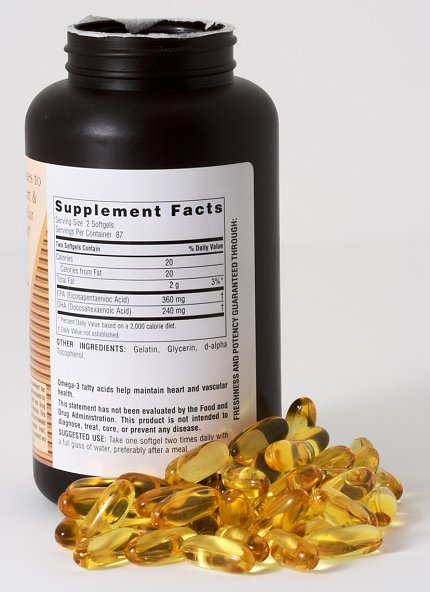Informed Decisions
Nutritionists Discuss Dietary Supplements

They’re wildly popular and their use is steadily growing. More than half of U.S. adults take one or more dietary supplements, from vitamins to probiotics, omega-3 fish oil to melatonin. Are supplements safe? Do they work? Two NIH nutrition scientists offer some precautions and reminders to help choose and use them wisely.
At this Mar. 16 webinar, fittingly during National Nutrition Month, Carol Haggans and Dr. Paul Thomas, registered dietitians and science and health consultants in OD’s Office of Dietary Supplements (ODS), took turns doling out tips about vitamins, minerals and herbal supplements, also known as botanicals. The event was one of several ODS has planned to celebrate its 25th anniversary.
Supplements are a booming business. “Americans spend more on supplements than they do on over-the-counter medications,” said Thomas, who noted that supplement use increases with age. More than three-quarters of people in their 70s and older take them.
And there’s no shortage of options. More than 80,000 products with hundreds of ingredients, individually or in combination, are out there, with no product registry. Many people take vitamins and minerals to supplement their diet; others take botanicals for their claims of an immunity boost, weight loss, soothing to sleep or preventing disease onset. Thomas urged caution.

“People who supplement tend to do it on their own without the help, advice or even knowledge of their health care providers,” he said. “And that’s not a good thing.”
In many cases, people get sufficient vitamins and minerals from food and may not even need nutritional supplements.
“It’s important to remember,” said Haggans, “supplements can’t take the place of a healthy diet, because foods contain other nutrients including dietary fiber and other substances that promote health.”
But people with nutrient deficiencies may opt to take them. Many adults over 50, for example, have trouble absorbing vitamin B12 from food. Vegans also may choose to supplement B12, zinc, iron and other nutrients found mainly in animal products.
Remember, noted Haggans, recommended dietary allowances (RDAs) include nutrients from foods, fortified foods, beverages and supplements, so don’t overdo it. Going beyond the upper limit of certain vitamins and minerals can be toxic. And some supplements can interact with certain medications—another reason to discuss supplement use with a doctor.
What about multivitamins? One-third of adults take them, but formulations differ, said Haggans. “There’s no definition of what constitutes a multivitamin in terms of how many ingredients they contain, which ones and at what doses, so it’s up to the manufacturer.” Check product labels to see what they contain.

Herbal supplements, on the other hand, don’t have daily values of intake, warned Thomas. “So you need expert advice on when and if to take the product, and the recommended dosing,” he said. “Just because botanical herbal supplements come from plants, don’t think that products labeled natural are automatically good and safe for you.”
Botanicals can vary greatly in composition. In fact, “for most botanicals, we don’t know what constituents are the most important, or what combination provides the potential health benefits,” said Thomas, “so the manufacturer often makes an educated guess.”
Some botanicals, like nutritional supplements, can either reduce or increase the potency of medications. And some come in concentrated forms that can be toxic if taken in excess.
Manufacturers often include the word “standardized” on the label, but that doesn’t indicate safety or effectiveness. It only helps to confirm the botanical is chemically consistent between batches.

Photo: sbonk/istock/getty
The Food and Drug Administration does regulate supplements, classifying them as foods, not as drugs. This designation prohibits manufacturers from making disease claims about the supplement. “But there’s a fine line for what’s allowed and what isn’t,” warned Haggans, and many people may incorrectly interpret the claims.
Good manufacturing practices are mandated, but the FDA does not pre-approve supplements for safety or effectiveness—except in the rare case of a new ingredient. There are also no mandatory formulation or dosing standards. Look for third-party seals, such as from the U.S. Pharmacopeia, NSF International and ConsumerLab.com, which are some of the independent organizations that verify the product was properly formulated and manufactured. However, these seals don’t guarantee safety or efficacy.
So do your homework, Haggans and Thomas advised. ODS has fact sheets on supplements for consumers and health professionals as well as a label database of more than 76,000 products. See https://ods.od.nih.gov/.
“The best advice we can give you is to talk with your health care providers before taking any supplements,” said Thomas. “Have a discussion with your doctor, pharmacist, registered dietitian or other provider about whether these products, and which ones, might be useful, or useless, to you.”
To view the videocast on-demand, see: https://videocast.nih.gov/watch=41643.
